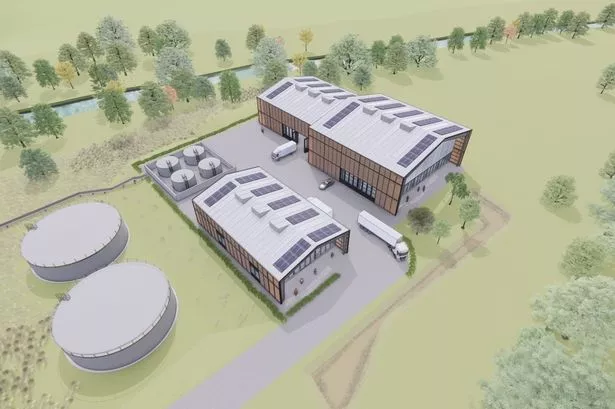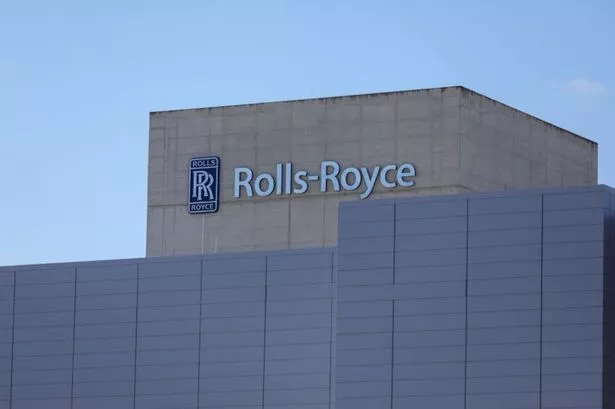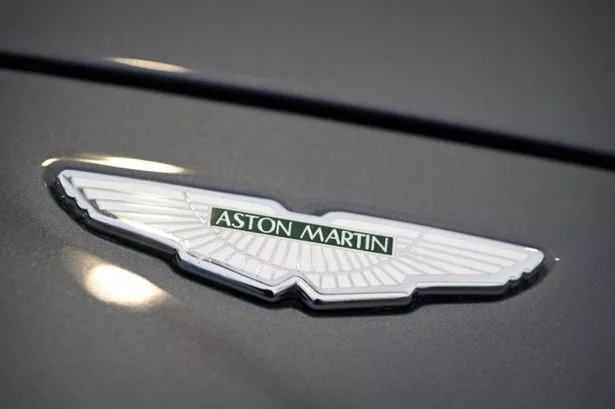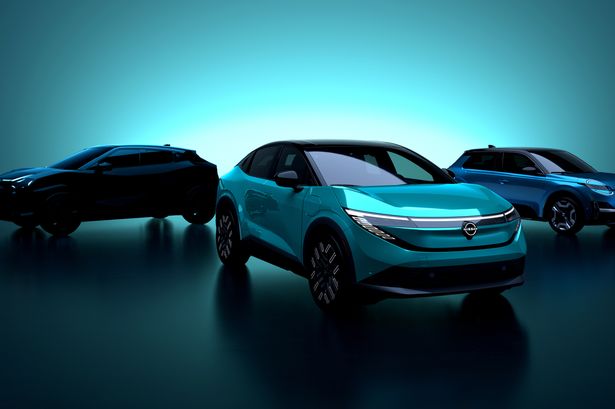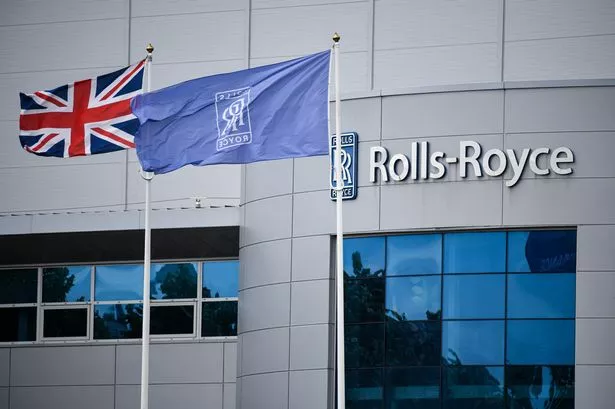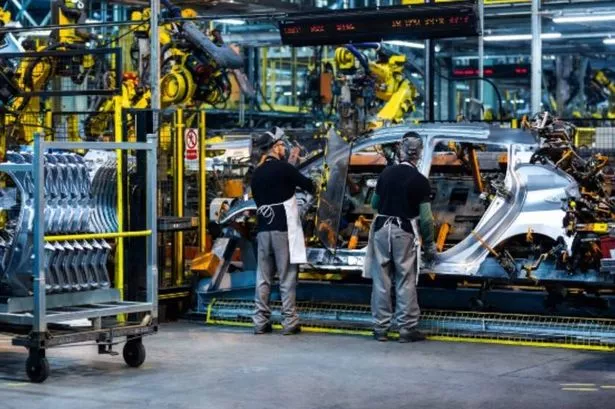
A rather barren-looking former cement works site, nestled in the otherwise beautiful surroundings of Weardale, County Durham, is a critical part of what could be the world’s first entirely circular electric vehicle (EV) production cluster.
The Eastgate works was demolished more than 20 years ago, but it is where Weardale Lithium has recently secured planning permission to build the country’s first lithium extraction facility. It hopes to take underground water - known as ‘geothermal brines’ - from beneath the North Pennines, before processing it to get lithium, a soft silvery metal which is ideally suited for use in batteries. The UK is estimated to need 15,000 tonnes of the stuff each year to feed the EV industry.
Stewart Dickson is the former investment banker and mining expert who leads the business, which has already used grant funding from the Government’s Automotive Transformation Fund to complete trials of its technology. The company says that work has been highly successful, and it is now pressing ahead with multimillion-pound plans to build a demonstration plant next to nearby boreholes - where it will produce battery grade lithium carbonate on-site.
Only 50 miles away on Teesside (“next door” in the minerals world), London Stock Exchange-listed company Alkemy Capital Investments is hoping to develop what it says is Europe’s largest low-carbon, lithium refinery. It hopes that facility can produce 15% of the continent’s requirements of lithium hydroxide - the next stage in the battery and EV supply chain. Lithium carbonate is the feedstock for that process and while not all of the Weardale-derived compound will go to Teesside, the two firms are already working together to create a supply chain.
With these two projects set up, North East lithium can then be taken to AESC’s gigafactories in Sunderland, made into batteries which are then put into vehicles at the nearby Nissan plant, before lithium is extracted from end-of-life batteries by Altilium Metals - which has been working in the region and has plans to build a facility on Teesside. Newcastle’s Connected Energy is also pioneering the use of second life batteries for storage systems.
Colin Herron, a prominent voice in the electric vehicle industry and heavily involved in the Faraday Institution, is energised by the possibilities - and says an all-encompassing industry in the North East is possible within two years, pending commercial agreements coming to fruition.
“We can present to the world - and we are - that this region is utterly unique in being able to do this,” Mr Herron says, having taken that message to trade shows as far afield as the US and Japan. “You’ve only got to go from Stanhope, up to Newcastle and across to Teesside - that’s it. That triangle there will have absolutely everything in it, including the car manufacturer and the battery manufacturer.”
In Weardale, the brines are said to be low in impurities - a factor that has excited US science and tech giant KBR, which is providing the technology licensing and proprietary engineering design for the County Durham plant. KBR’s involvement is seen as a coup for Weardale, meaning it can offer a one-stop-shop solution for turning brines into lithium carbonate - a rarity in the market. The $7bn revenue operator - which has a hand in everything from fertiliser projects in Angola to engineering for NASA satellites - brings capabilities to the project that Weardale’s nascent competitors do not have.
You have to travel about 450 miles south, to Cornwall, to find the competition. Here Cornish Lithium and GEL are looking to do similar things, though Weardale’s operation is said to be larger and already has a march on the planning front. Mr Dickson expects the project to break ground this year with the first lithium carbonate emerging from the site next year.
“It’s a very fast-paced development, but we think the project merits that. I’m sure it won’t be a straight road because what we’re doing is innovative and it's new. So, we’ll have to be agile along that journey. It’s very much a scaled, stepwise approach.”
The undertaking is an enormous one, and requires sizable investment. The recent planning success has provided a boost, giving more surety to potential backers. In 2023, Cornish Lithium secured £24m of backing from the UK Infrastructure Bank - now the National Wealth Fund - and while Mr Dickson says such investment in the Eastgate plant is unlikely at this stage, there are conversations taking place that he hopes will pave the way for future injections.
There are frustrations though - and Mr Dickson says this Government and the last have so far “not adequately resourced policy” around batteries and UK critical minerals. With key minerals such as lithium shaping up to become the “next economic battlefield” in a more geopolitically precarious world, Weardale’s home-grown approach comes with compelling national security and capital efficiency selling points.
And it’s not only money needed to get the project off the ground. Skills are another urgent demand. Weardale has talked of its commitment to hiring locally, but admits that at least some of the jobs will be recruited globally.
“Isn’t that exciting?” says Mr Dickson, who sees the challenge as a positive one. “New science, technology and engineering, green jobs that are ready for future-facing businesses.
"But, that brings with it a new set of challenges. We’ve already done the preliminary scoping of the number of jobs that we’ll need and the roles, and we have an ambition to hire locally. That will require some upskilling of people already in the labour force and also new skills for people coming into the labour force.
Recent
See All2025-05-09
Defence stocks plunge in panic selling as Trump tariffs spark global panic
2025-05-09
Fentimans runs tight ship to boost profits despite consumer spending issues
2025-05-09
Arla Foods to merge with German milk cooperative to form €19bn revenue giant
2025-05-09
Rolls-Royce shares surge as Derby-based FTSE 100 firm recovers after Trump tariff scare
2025-05-09
Aston Martin to pay top bosses more than peers after struggling to attract talent
2025-05-09
Manufacturer celebrates 'significant milestone' with French Connection deal
2025-05-09
Nissan reveals new European range including Sunderland-built Leaf and Juke - and a comeback for the Micra
2025-05-09
Rolls-Royce stock plummets 10% amid global trade war fears and new tariffs
2025-05-09
Nissan boosts number of cars produced at Sunderland but UK company makes a loss
2025-05-09
Penarth headquartered global diagnostics firm EKF appoints new CEO
Newsletter
Get life tips delivered directly to your inbox!
